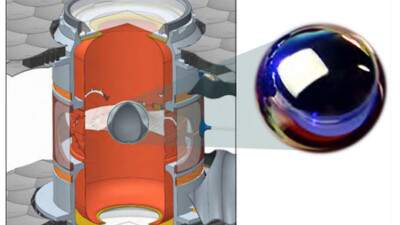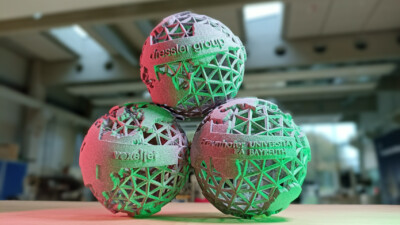COR Zero aims to make production-quality additive manufacturing more accessible.
polySpectra, maker of rugged photopolymer resins, is launching its latest cyclic olefin resin (COR) material on Kickstarter: COR Zero. COR Zero is designed to be a manufacturing-grade material for resin 3D printing that can be printed and processed in a home workshop with inexpensive equipment.
“It took us more than a decade to develop a COR formulation that was safe enough and inexpensive enough for individuals to use in their own workshop,” said polySpectra Founder and CEO Raymond Weitekamp. “We’re partnering with Kickstarter specifically because the kind of person who would be most empowered by COR Zero is the kind of person who would launch a Kickstarter for their innovative physical product idea.”
COR Zero marks polySpectra’s entry into the consumer market. Intended to enable designers and engineers to skip injection molding, COR Zero aims to lower the cost innovation in a number of key application areas, including end-use manufacturing for:
- Mechanical components such as gears and impellers
- Fluidic components such as valves and manifolds
- Enclosures and housings for electronics and consumer products
- Wearables, such as glasses frames and podiatry inserts
While resin-based 3D printed parts can experience issues of brittleness or poor thermal stability, COR materials are designed to be compatible with both industrial and desktop DLP/LCD 3D printers and, according to polySpectra, they bring additive parts closer to true production quality. The company has stated that it will continue to refine the formulation for COR Zero before shipping, but offered the following representative properties:
Tensile Properties:
- Average UTS: 53 MPa
- Average Modulus: 2175 MPa
- Average EAB: 18%
Impact Strength:
- Average Notched IZOD 27 J/m
- Average Un-Notched IZOD 400 J/m
Thermal Properties:
- Glass transition temperature (Tg) between 125 °C (E” max) and 145 °C (tan delta)
“The chemistry behind COR Zero has been in development for many years, with direct input and validation from Fortune 500 customers, leading aerospace firms and the US Department of Energy,” said Weitekamp. “We are tremendously excited to bring this powerful technology to the general public, which we hope will accelerate innovation in hardware and durable goods.”



